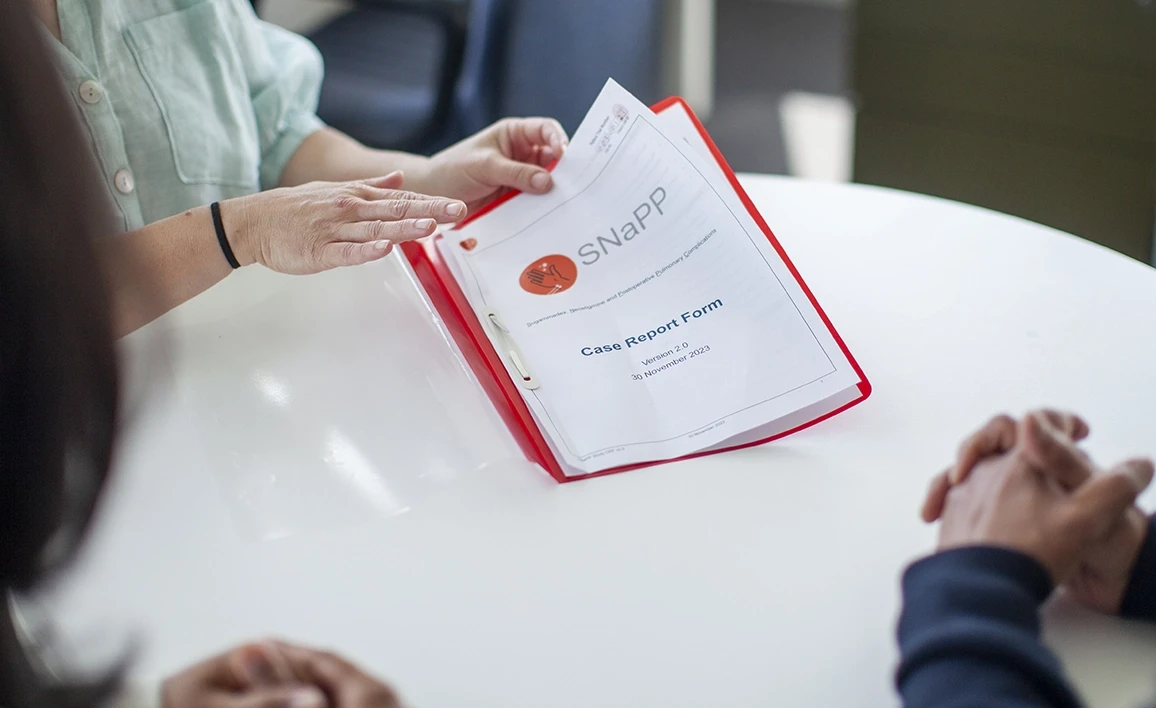The SNaPP study is progressing quickly and will complete recruitment by the end of July 2025. There are 2879 patients randomised across 41 active sites. We are not recruiting any new sites.
Study summary
The SNaPP Study is a multicentre, double-blind, randomised clinical trial examining the effect of reversal of neuromuscular blockade on postoperative outcomes. Adult patients having abdominal or thoracic surgery under general anaesthesia will be randomised to sugammadex or neostigmine for reversal of neuromuscular blockade. The primary outcome is a composite of death or postoperative pulmonary complications up to hospital discharge (or postoperative day 7 if still in hospital).
Eligibility
Patients aged 40 years and over, scheduled for abdominal or thoracic surgery under relaxant general anaesthesia with an endotracheal tube, with expected operative time of ≥2 hours and hospital stay ≥1 postoperative night.
Study intervention
Sugammadex or neostigmine for reversal of neuromuscular blockade
Primary endpoint
A composite of death or postoperative pulmonary complications up to hospital discharge (or postoperative day 7 if still in hospital).
Secondary endpoints
Secondary endpoints include components of the composite primary outcome, postoperative nausea and vomiting, unplanned ICU/HDU admission, days alive and at home, and change in health-related quality of life. Exploratory endpoints include duration of post anaesthesia care unit stay, airway instrumentation in the post anaesthesia care unit, change in quality of recovery score, change in frailty and severity of postoperative pulmonary complications. A health economic analysis is also planned.
Safety endpoints
A comprehensive set of events will be recorded as trial safety endpoints.
Sample size
3,500 patients
Study duration
Four years
Medical Research Future Fund grant $2,948,208.65 (2023-2027)
The Australian and New Zealand College of Anaesthetists Foundation (2020) (CTN pilot study) $10000
The start-up meeting was held at the ANZCA CTN workshop in August 2023.
Professor Kate Leslie AO FAHMS
Professor David Story
A/Professor Jai Darvall
Professor Philip Peyton
Ms Sofia Sidiropoulos
The University of Melbourne (Administering institution)
Australian and New Zealand College of Anaesthetists Clinical Trials Network (ANZCA CTN)
Australian and New Zealand College of Anaesthetists Clinical Trials Network (2020)
ANZCTR identifier: 12623000394640
| Participating hospitals |
| Australia |
| Alfred Health |
| Austin Health |
| Box Hill Hospital |
| Flinders Medical Centre |
| Logan Hospital |
| Mackay Base Hospital |
| Monash Medical Centre, Clayton |
| Monash Moorabbin |
| Northern Health |
| Peninsula Health |
| Peter MacCallum Cancer Centre |
| Princess Alexandra Hospital |
| Queen Elizabeth II Jubilee Hospital |
| Redcliffe Hospital |
| Royal Adelaide Hospital |
| Royal Brisbane and Women's Hospital |
| Royal Melbourne Hospital |
| Royal North Shore Hospital |
| Royal Prince Alfred Hospital |
| St John of God Subiaco Hospital |
| St Vincent's Hospital Melbourne |
| St Vincent's Hospital Sydney |
| University Hospital Geelong |
| Waitemata District Health Board, North Shore Hospital |
| Westmead Hospital |
| Western Health, Footscray |
| Western Health, Sunshine |
| New Zealand |
| Auckland City Hospital |
| Counties Manukau |
| Waikato Hospital |
| International Hospitals |
| Prince of Wales Hospital, Hong Kong |
| Tuen Mun Hospital |
Please email Sofia Sidiropoulos if you are interested in being involved or would like any further information about the SNaPP Study.
Leslie K, Chan MTV, Darvall JN, et al. Sugammadex, neostigmine and postoperative pulmonary complications: an international randomised feasibility and pilot trial. Pilot Feasibility Stud 2021; 7: 200.

